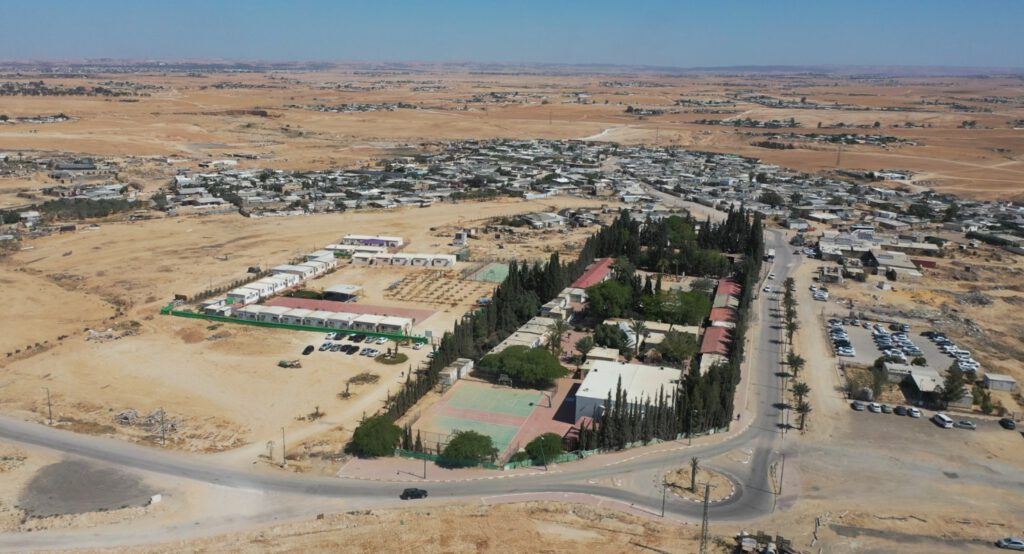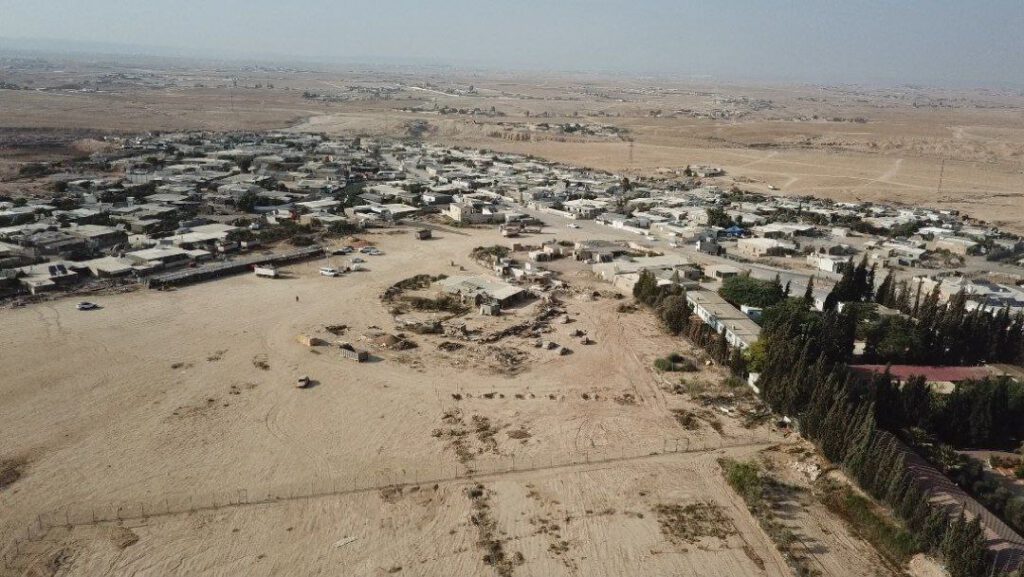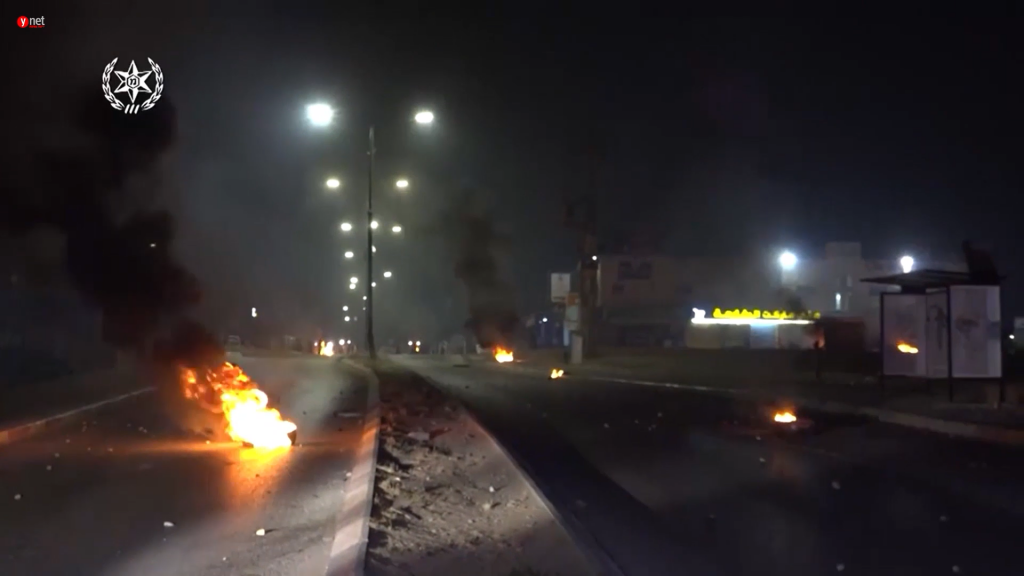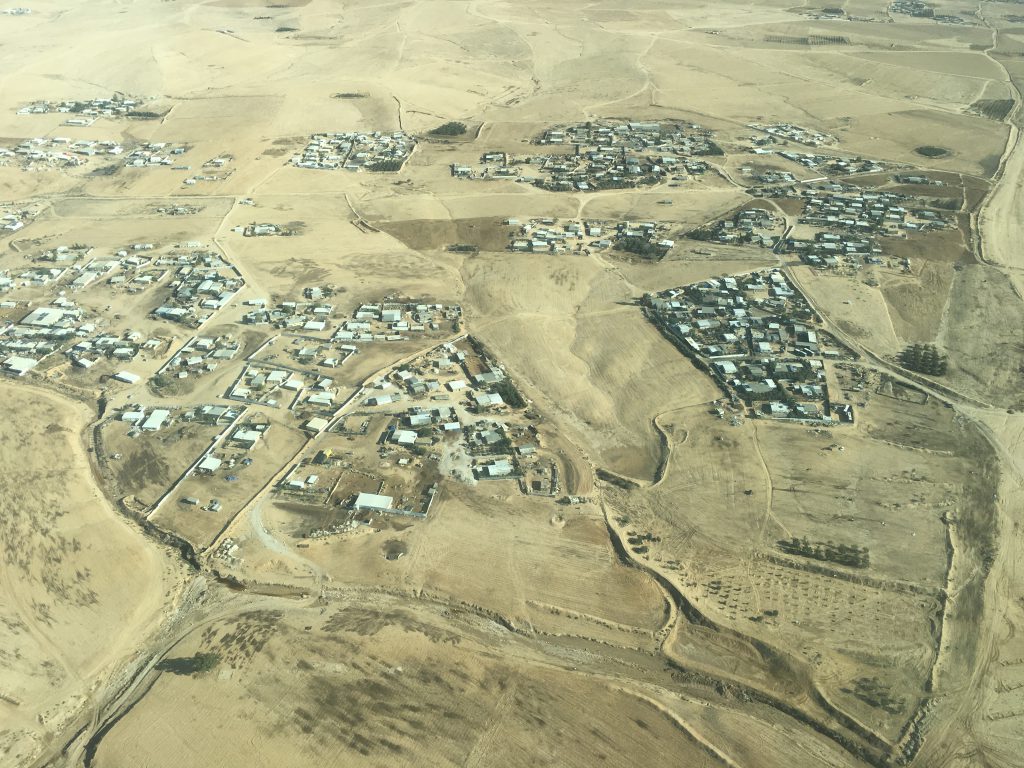
Beer Sheva District Court instructs the government to remove the squatters of Al Zarnog: “The State cannot condone the violation of individual proprietary rights.”
A decisively-worded verdict was recently handed down by Judge Chani Slotki of the Be’er Sheva District Court, in a petition demanding that enforcement procedures be taken against hundreds of Bedouin squatters from the Abu-Quider tribe who invaded private, Jewish-owned land near Moshav Nevatim in the Negev. The decision ends a legal battle and countless attempts at mediation that have dragged on for over a decade.
“The state may accept the violation of its own property rights, but it cannot condone the violation of the property rights of individuals,” noted Slotki, who ordered the issuance of demolition orders for all the structures in the Al Zarnog encampment, prioritizing enforcement against structures located on privately owned land and finding immediate accommodations for relocating the residents. In addition, legal expenses were awarded to the petitioners in the amount of NIS 15,000.
This is the second petition involving this land parcel; the first petition, submitted in 2012, was set aside in light of the state’s commitment to curb further invasion of squatters, and to develop a residential complex in the south of Rahat to which the existing squatters would be relocated within 6 years. The state further committed to strict enforcement against any new illegal construction in the interim period.
In practice, construction of the new neighborhood has taken more than a decade, during which hundreds of additional families invaded the private plot and law enforcement against new illegal construction in the ever-expanding squatters camp was virtually non-existent.
As the new neighborhood of Rahat neared completion, it became clear that the state had designated most of the plots to the families that have been squatting on state land adjacent to the privately-owned land; no relocation site was set aside for the families squatting on the privately-owned lands of Al Zarnog. Additionally, the state has refrained from taking enforcement action against the illegal structures that continue to pop up on the privately owned property.
Arguments were heard in the Beer Sheva District Court this past May. Attorney Amir Fisher, who represented the petitioners, argued that the state violated its commitments to the legal owners of the land and to the court by enabling the continued growth of the illegal encampment and is now washing its hands of the problem, resulting in expropriation of the petitioners’ property without compensation and violation of their rights.
Attorney Yaari Roash, representing the state, argued that due to the opposition of the Rahat Municipality, the development of plots to accommodate the evacuees was delayed for years, during which time the state allotted the plots in the new section of Rahat to any families willing to sign relocation agreements – without distinguishing between those who were squatting on private versus state land. “While the Bedouin Authority is obviously interested in relocating all the squatters,” Roash argued, “no additional solutions are available.” The representative of the Bedouin Authority presented official data on the situation: There are 550 households squatting on the private land, and only 50 families have signed relocation agreements; the remaining families are adamantly opposed to relocation and do not cooperate at all with the authorities or engage in negotiations.
Judge Slotkin opined that families living illegally on privately-owned land should be prioritized in receiving lots, in order to speed up enforcement procedures and regulation processes. The state’s representatives explained that, “regrettably, there are no vacant lots left, and due to this situation the authorities refrain from enforcement; the longstanding policy is that no enforcement procedures are carried out against squatters who do not have a readily available alternative.”
Slotkin replied: “I’m looking for solutions; this situation cannot be allowed to continue. That is why what you ‘regret’ is not what I regret. I regret that there is a violation of property rights.” Judge Slotkin gave the parties 30 days to reach a compromise; after mediation attempts were unsuccessful, the parties returned to court and the decision was handed down.
“The court has required the state to remove the kid gloves with which it has dealt with Bedouin construction offenders,” says Meir Deutsch, Director General of the Regavim Movement. “The state admitted, during the course of the hearing of this petition, that the program for regulation and relocation it presented to the court ten years ago, which was the basis for dismissing the original petition, was a work of fiction. Not only did the state fail to relocate the squatters, it also failed to demolish new illegal construction as promised. Thus, we have reached a situation where instead of 150 families who were squatting on the property at the time of the original petition, there are now 550 families that have taken up residence on private property, and they flatly refuse to cooperate with any attempt at regulation and regularization.”
“The District Court’s verdict restores hope – to the owners who have been waiting for decades to redeerm their property, and to all Israelis, who have waited for too long for justice to be done and for governance to be restored to the Negev,” Deutsch added.











